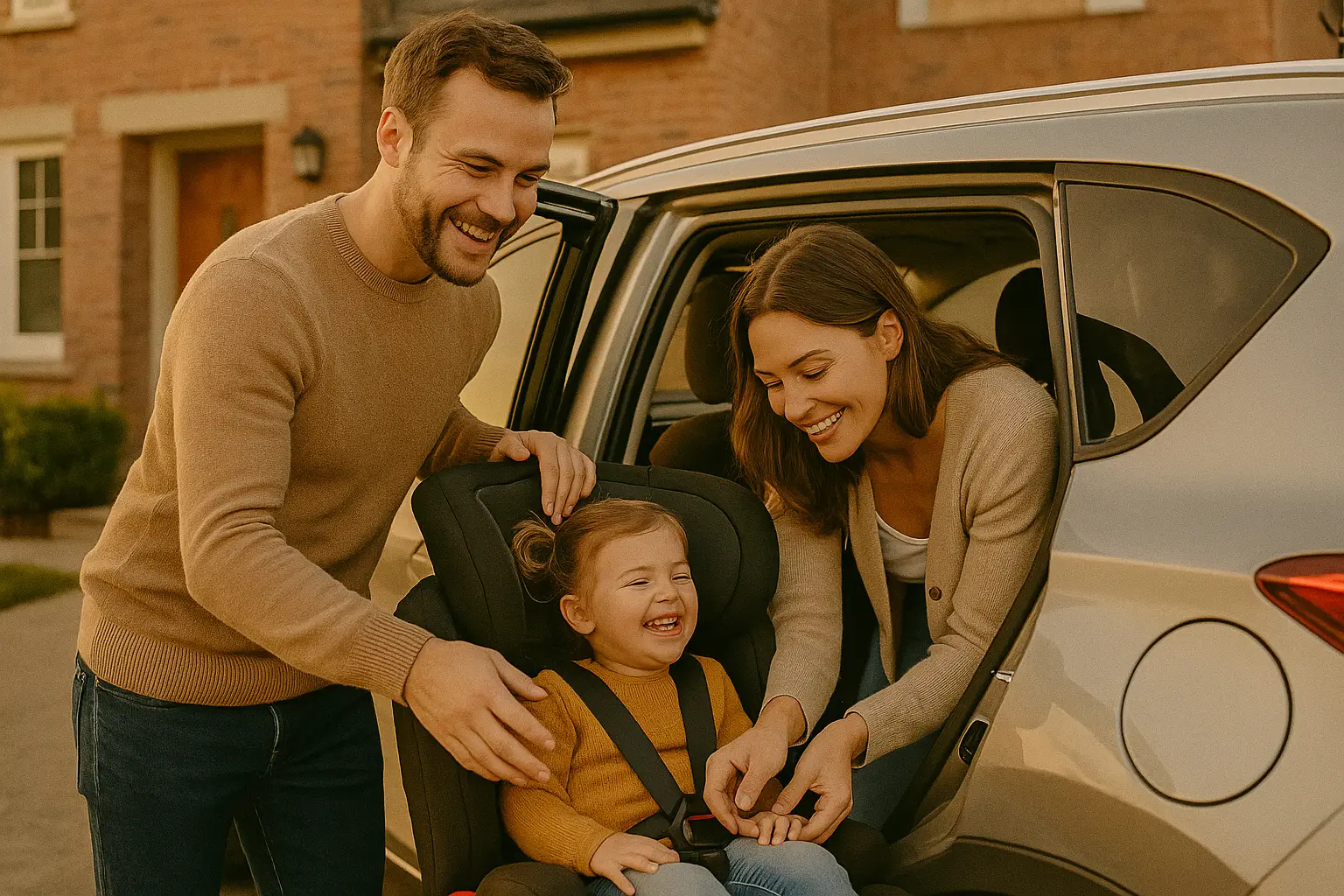Warning, borrowing money also costs money.
Car Purchase: New or Used, Find the Ideal Financing!
Ready to buy the car of your dreams? Whether it’s a new, fully-equipped model, a reliable used car, or an eco-friendly city car, we help you compare options and get a car loan perfectly suited to your project and budget.
Simulate the financing for your future carLegal Notice
** A loan commits you and must be repaid. Check your repayment capabilities before committing. The rates indicated are for information purposes only and subject to approval of your application.
New or Used Car: What’s the Best Choice for You?
The choice between a new and a used car depends on your priorities, budget, and needs. Here are the key points to help you decide, knowing that our financing solutions adapt to both options.
The advantages of a new car
- Manufacturer’s warranty: Peace of mind for several years.
- Latest technologies: Enjoy innovations in safety and comfort.
- Customization: Choose the color, options, and finishes.
- No hidden history: You are the first owner, no unpleasant surprises.
- Advantageous financing: Often lower rates and longer repayment terms.
The perks of a used car
- Lower purchase price: Your budget gives you access to a higher-end model.
- Slower depreciation: The biggest loss in value has already occurred.
- Immediate availability: No long delivery times to worry about.
- Reduced insurance cost: Premiums are generally lower.
- Flexible financing: Loan solutions also exist for used cars, even from private sellers.
Whatever your choice, a Car Loan is the key.
Discover my financing capacityFree • No obligation • Quick in-principle decision

Why is a dedicated Car Loan the best option?
Rather than using your savings or a standard personal loan, a Car Loan offers benefits specifically designed for your vehicle purchase:
-
Attractive rates for your budget: Since the loan is tied to a vehicle, the risk is lower for the lender, which translates to better rates for you.
-
Full financing without a down payment: Get up to 100% (or more) of the purchase price to cover the vehicle, registration tax, and the first insurance premium.
-
A flexible solution for new and used: The terms (duration, amount) are adjusted whether you buy from a dealership or a private individual.
-
Protection for your purchase: The credit is linked to the car. If the sale is canceled, the loan is too, thus protecting you from an unnecessary commitment (subject to conditions).
Simulating your Car Loan beforehand gives you a significant advantage: you know your budget even before you start negotiating with the seller.
From simulation to getting behind the wheel: your project in 4 steps
We have simplified the process so you can focus on what’s most important: choosing the right car.
1. Assess your budget
Use our simulator to determine the amount you can borrow and to know your future monthly payments.
2. Find your car
With a clear budget in mind, look for the perfect new or used car at a dealership or from a private seller.
3. Submit the application
Once you’ve chosen the vehicle, finalize your application online with the purchase order or draft sales agreement.
4. Get behind the wheel!
After the contract is signed, the funds are transferred to the seller. All that’s left is to pick up the keys to your car!

Financing that adapts: New vs. Used
The type of vehicle you choose influences the loan conditions. We adjust our offer to be as relevant as possible.
For a new car
You benefit from the most advantageous conditions:
- Extended repayment term (up to 84 months or more).
- The lowest interest rates on the market.
- 110% financing possible to cover taxes and insurance.
For a used car
We offer solid and secure financing:
- Term adapted to the vehicle’s age and value.
- Competitive rates for vehicles under 3 or 5 years old.
- Option to finance a purchase from a garage or a private individual.
Your checklist for a successful car purchase
A well-prepared project is the guarantee of a smooth transaction and optimal financing.
1. Calculate your total budget
Think beyond the purchase price. Use our simulator to estimate a comfortable monthly payment, including insurance, taxes, and future maintenance in your planning.
2. Compare cars
List your needs (commute, size, fuel). Test drive several models. For a used car, check the maintenance history and the technical inspection report.
3. Get the purchase order
Once you’ve found the car, ask the seller for a purchase order (for new) or a draft sales agreement (for used). This document is essential for the loan application.

New or used, they made their project a reality
“I was hesitating between a new city car and a used sedan. The online simulation helped me see that I could afford the comfort of the used car for the same monthly payment. The process to finance the purchase from a garage was very fast.”
“For my first car, I wanted the security of a new one. The proposed car loan even covered the registration tax. My advisor was super clear and supported me right up to the key handover at the dealership. A stress-free experience!”
FAQ: New & Used Car Purchase
The answers to your questions to choose, finance, and buy your next new or used car with peace of mind.
Yes, there are notable differences. For a new car, lenders generally offer lower interest rates and longer repayment terms (e.g., 84 months), because the vehicle has a maximum value and a warranty. For a used car, the loan term is often linked to the age of the vehicle (e.g., the sum of the car’s age and the loan term should not exceed 8 or 10 years). The rates may be slightly higher but remain very competitive, especially for recent used cars (under 3 years old).
Absolutely. It is entirely possible to finance the purchase of a used car from a private seller. The process is similar to buying from a garage. You will need to provide us with a draft sales agreement signed by both parties, mentioning the vehicle’s details (make, model, chassis, mileage, price) and the seller’s contact information. After approval, the funds can be transferred directly to the seller’s account to secure the transaction.
The simulator is a powerful decision-making tool. By entering the price of a new car and a used one that interests you, you can instantly compare the monthly payments. You might realize that for the same monthly payment, you can either:
- Opt for a base-model new car.
- Or afford a larger, better-equipped, or more powerful used car.
This allows you to make an informed choice based not on the purchase price, but on the real impact on your monthly budget.
There is no strict rule, and it varies among financial institutions. However, a common practice is that the age of the vehicle at the end of the credit term should not exceed a certain threshold, often set between 8 and 12 years. For example, if you buy a 5-year-old car, the maximum term of your loan will likely be 3 to 5 years. For older vehicles (over 7-8 years), obtaining a dedicated car loan can become difficult, and a personal loan might be an alternative.
Comprehensive (full-coverage) insurance is not legally mandatory (only liability insurance is). However, it is highly recommended and often required by the lender for financing a new car. For a used car, it is recommended if the vehicle still has a significant value (usually during the first 2-3 years). It protects you in case of damage to your own vehicle, which is crucial when you still have a loan to repay.